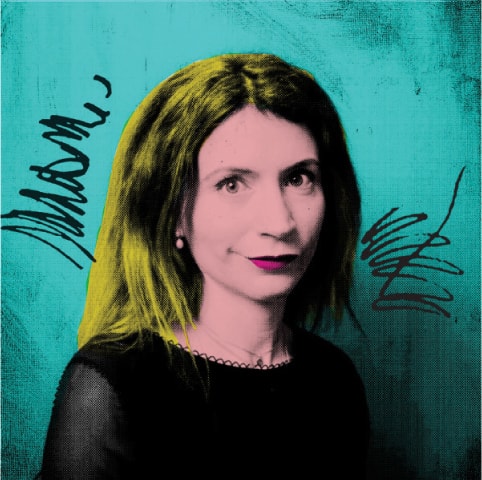
This August, the Hindu right-wing leader Narendra Modi provocatively revoked India-held Jammu and Kashmir’s (IHK) semi-autonomous status. Not for the first time, the Indian prime minister also shut down internet and mobile phone access, blocking Kashmiri communications with the rest of the world. Local politicians were put under house arrest, a draconian curfew was imposed and at least five young lives have already been lost in protests.
Such clampdowns and violence are nothing new. For three decades, Kashmiris’ disillusionment with Indian rule has been pushed to crisis point. Despite India’s claim to be the world’s largest democracy, and notwithstanding United Nations resolutions, no plebiscite has ever been held in the disputed region as to whether or not Kashmiris want to belong to India. Furthermore, the government in IHK in the late 1980s was extremely corrupt, price rises caused extreme hardship for locals already struggling to make ends meet and election results were disputed. As a result, the 1990s onwards have been a dark time of insurgency. Various guerrilla groups continue in their jihad either for the territory to join Pakistan or for Kashmir to gain full independence. There have been terrible Indian government reprisals, including rapes, curfews, torture, imprisonment and murder.
These human rights’ violations and resistance to them have been dramatised by numerous writers, of whom we discuss two. In Curfewed Night: A Frontline Memoir of Life, Love and War in Kashmir, Basharat Peer narrates the transformation of his much loved ‘fairyland’ (Kashmir) into a space of chaos through the active emergence of Islamic militants trained in Pakistan and countered by India’s military operations in IHK. Religious symbolism — particularly the image of a shrine as a sacred and political space — looms large in this memoir.
Shrines and sacred spaces reflect the ways in which Peer responds to Kashmiri Muslim identity. He grows up witnessing the movement for azaadi [freedom] in Srinagar running alongside the Sufi Islam practised in the valley. The shrines are a reminder of peace and love, neutralising the regional and political tensions emerging in the valley since the ’90s. Yet, negating this tradition of love and peace, shrines become a space where people come and pray for azaadi. Independence marches start and terminate at various famous shrines, thus complicating the discourse of Kashmiriyat, or shared Kashmiri culture beyond religion.
At various moments in the book, Peer deploys religious symbolism in defining the political self. The Muslims in Srinagar associate their religious identities with Kashmir’s political context. This becomes apparent during their interactions in mosques, shrines and religious festivals. These concerns exist in parallel to the ongoing process of militarisation and Kashmiris’ struggle to redefine their political self.
Peer explores how people in Srinagar have altered the traditional concept of Sufism and shrines. His memoir shows that traditionally, Kashmiris visit these shrines as the Sufi saints they commemorate are viewed as being particularly close to God and can intercede with the deity. Worshippers believe their prayers have a greater chance of being answered. These supplicants also give up their worldly desires by taking this opportunity to spiritually unite with God at the shrines. Thus, pilgrimage to a shrine, for Kashmiris, can confer spiritual value almost as strongly as Haj does.
Yet, Peer shows that some puritanical groups emerging in Kashmir are condemning activities within or around shrines as being “un-Islamic.” In doing so, hardliners neglect the importance of saints’ shrines as social and cultural spaces, according to Peer. Significantly, over the last three decades, such spaces have turned political, with devotees praying there for azaadi and the strength to overcome Indian occupation.
Hardliners neglect the importance of saints’ shrines as social and cultural spaces.
Arundhati Roy similarly explores Kashmir and shrines in her long-anticipated second novel The Ministry of Utmost Happiness. Writing about an unnamed satirical version of Modi (known as Gujarat ka Lalla) and his atrocities in Kashmir, the Indian author and activist has one of her characters speak of the world’s “stupidification” amid the rise of an intolerant populism. She writes of the despair of the Mothers of the Disappeared in Kashmir as the world’s media point their lenses elsewhere. Like Peer, she shows that extremists are chipping away at the culture of shrines and Sufism: “... the syncretism of Kashmir ... would not be tolerated. There was to be no more of that folksy, old-world stuff. No more worshipping of home-grown saints and seers at local shrines, the new militants declared, no more addle-headedness. There were to be no more sideshow saints and local god-men.”
The god-men’s suppression of shrine worship — a source of strength for many Kashmiris — is surpassed by the Indian army’s abuse and torture of the province’s inhabitants. Ultimately, Roy suggests, the two implacably opposed sides square off in what has become “a perfect war — a war that can never be won or lost, a war without end.” It is hard not to think here of [Kashmiri poet] Agha Shahid Ali’s poem ‘Farewell’: “You needed me. You needed to perfect me/ In your absence you polished me into the Enemy.”
The never-ending war in Kashmir is refracted sharply through such literary contributions by South Asian writers. These authors resist political pressures while also conveying historical realities that are silenced by the state.
Claire Chambers teaches global literature at the University of York and is the author of three books, including Rivers of Ink: Selected Essays
Nukhbah Taj Langah is associate professor of English at Forman Christian College and works on postcolonial studies, translation studies and regional resistance literature from the South Asia
Published in Dawn, Books & Authors, September 29th, 2019














































Dear visitor, the comments section is undergoing an overhaul and will return soon.